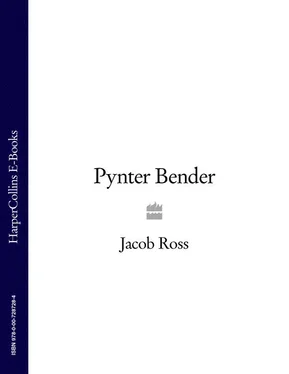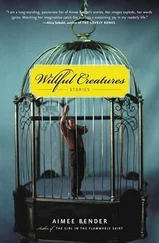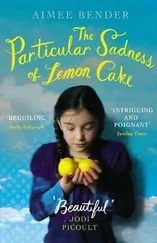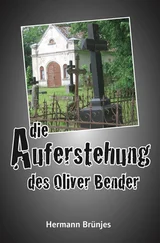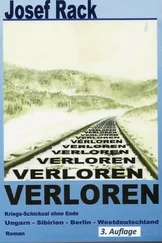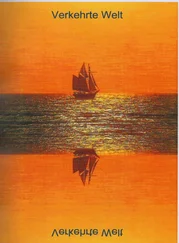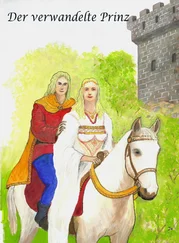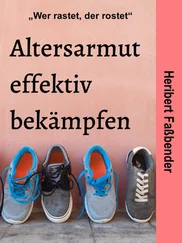Before he realised it, he was running through the canes, the saw-edged leaves cutting at his face and arms and legs. And then he was running home across the field of stones that took him all the way down to that thick green copse of almond trees, Miss Lizzie’s laughter trailing behind him like an accusation.
Aunt Tan Cee’s hands woke him that night. Most times he chose to sleep on the long wooden bench in the place they called the kitchen which no one ever cooked in. He slept on his back with his eyes wide open, they said. His twin brother, Peter, told him they shone like polished marbles in the lamplight.
Tan Cee had unbuttoned his shirt without his knowing. She’d brought the lamp down close to his skin. With the other hand, she was passing a warm, damp cloth over his chest and arms and stomach. Pynter looked back at her through slitted eyes. She stroked her thumb across his brow and he felt a warmth seeping into his head.
‘Tell me what happm,’ she whispered.
All he could see were her arms and face framed by the blue headwrap she always wore. The rest of her had melted into the darkness beyond her shoulders.
‘Don’ wan’ my eyes no more,’ he said. ‘Wish I never have dem.’
She eased herself backwards. The lamplight dipped and fluttered and the whole room seemed to teeter with the flames.
‘Which you prefer, Sugarboy? If Santay come to take back your eyes, yuh’ll agree to give dem back?’ She lifted the cloth from his stomach and brought her face down close to his. She smelt of plant things – nutmeg oil, and the bay leaves she picked to make him tea. ‘You still got your baby eyes, that’s all. Ever see how baby eyes look? Just like yours – light like a whiteman eye. Time goin come when all dat daytime sun goin darken dem, like how fire darken wood. If whiteman used to born an’ live here, you think he eye not goin to get dark too? Just give it time, Pynto.’ Her fingers traced the welts across his arms and the small gashes on his face. ‘You not goin tell me what happm down dere, not so?’
She came to her feet as if lifted by some invisible hand behind her. Now her face was a dark full moon above him. ‘Well, Elaine done come an’ tell me.’ She’d pulled her lips back so that he could see her teeth. ‘Come Saturday, you’n me goin down dere together.’ And suddenly she was no longer there, just the scent of nutmeg oil and the throb of her thumb above his eyes.
The throb was still there when he climbed to the top of Glory Cedar Rise next morning to get nearer to the sun. To turn his face up towards it and outstare it. But the sun was a hot metallic eye that didn’t blink, and so it left a burning ember behind each socket in his head and reduced the green of the world to a charred and shapeless darkness.
His eyes stared back at him from the glass of the cabinet in his mother’s hallway, the enamel of the cups in there, the flake of mirror above her bedhead, the water in the buckets brought home from the standpipe by the road. From the liquid, broken light of running river water. They stared back at him, pale like a washed-out sky, from behind the red curtains of his lids; were still staring back at him on Saturday, when Tan Cee arrived, placed a hand between his shoulder blades and steered him down towards the river.
He could hear his naked feet pounding like a heartbeat against the earth and feel the sweat running down the drain of his back. He could smell the danger rising from his aunt as she pushed him along the winding path towards the women.
He was thrust by his aunt’s hard hand among the swirl of voices: Miss Maisie’s teasing, Miss Lizzie’s laughter, bright and sharp like a blade against a stone. The chorus of chuckling and curses and the quietness that always surrounded Miss Elaine. Miss Elaine – tall and bright-eyed, under the bamboos as usual – another red dress coiled around her elbow as if she’d never left the river.
Tan Cee left him standing in the water and walked towards the bank. The sun was a hot sheet on his skin, and the swirling cold water numbed his feet. He wanted to call to her, but the tightness in her face stopped him – that and the little knife that appeared in her palm, curved like a fingernail. Miss Lizzie saw it too. Her eyes followed the arc of the tiny blade as his aunt’s arms darted among the shrubbery, slipped through stems, gathering leaves.
The women turned their heads back down to their washing, their large round shoulders hunched against the day. In the midst of all of them, Miss Lizzie seemed alone, her unblinking eyes fixed on his auntie’s face. Pynter turned towards the women and shivered. The silence among them was dense and tight and terrible.
Returning from the bank, his auntie walked through the water towards him. She dropped the herbs on a stone beside his feet, tossed a handful of water on them and bent down to crush them with the heel of her palm. The plants surrendered their odours, which prickled like needles in his nostrils. And when the herbs had been mixed into a green and oozing paste, Tan Cee reached out and dragged him towards her. He was aware of her hands at his armpits, of his feet leaving the water, his body being lifted onto a tall stone so that all of the river lay before him, and all of the eyes of the women.
She dragged his shirt from his shoulders, slipped his short trousers past his knees, and now he was naked, and he wasn’t embarrassed or afraid.
Pynter stood there with her propping him up, still shivering in the heat, looking down at himself as if his body no longer belonged to him: his small penis dark and curved like a bean-pod; his stomach round and tight and smooth; his navel a tiny hill which his grandmother said had anchored him so stubbornly to his mother that when they’d severed it, it had almost killed her. And his feet, which his mother said had to have come from his father, Manuel Forsyth, because they were too long and narrow to be a Bender’s.
The water fell in a sudden scalding shower down his shoulders. Its coldness knocked the breath out of him. It stopped his shivering. Tan Cee coated him in the sap of the plants and he felt his skin grow stiff and tight like paper, and then very, very slowly she rinsed the paste off him.
Now he saw that each of the bruises he’d suffered the week before had risen up again, and stood like purple worms against his dark skin, as if they had only retreated to wait for his auntie’s hands to bring them back.
‘Look at ’im,’ she said. ‘He got anyting y’all boy-chile don’t have – dat is those of you who kin have! Hi skin don’t bruise-an’-bleed like everybody own? He different? Yes, he different. Lemme tell y’all what make ’im different: he mine! Dat’s what make ’im different. He mine.’ Her voice had climbed above the bamboos. It was bright and hard like the blade she carried somewhere in her bosom. ‘An’ so help me God, if dis ever happm again, I kill de bitch who cause it.’
She swung her head away and turned to leave, with his clothes still tucked under her arm. He climbed down the stone to follow her.
‘Where you goin?’ Her rage washed over him like cold water. ‘You not leavin here now. You leave here when you ready. Y’hear me!’
He watched the blue flash of her bright headscarf receding as she climbed the hill through the restless netting of the canes. He was left naked on the stone in the middle of the river before the eyes of the women.
Santay was the woman who had given him back his sight. Hers was the first face he’d ever seen, the first lips that had shaped words before his eyes, the first eyes he’d ever looked into with his own.
They hadn’t prepared him for her coming. Santay was Tan Cee’s friend – the woman who lived in a small wooden house above their valley, who spoke to the departed and knew every plant on earth that cured or killed. She knew poisons that could put a man to sleep for good or kill the fire in his loins. Tan Cee told him that. His aunt also told him that men never went to her, only the women. They carried their illnesses, their children and their tiredness to her. And there were those like Tan Cee who, every new moon, travelled to her place, lit a fire in her yard, danced and sang songs which she repeated to him from time to time.
Читать дальше
